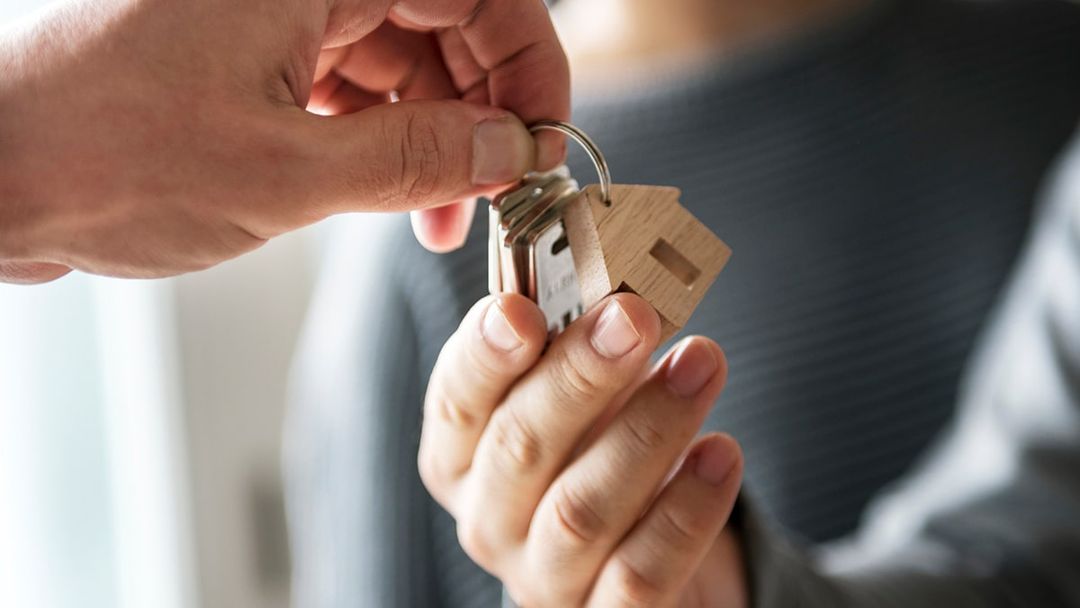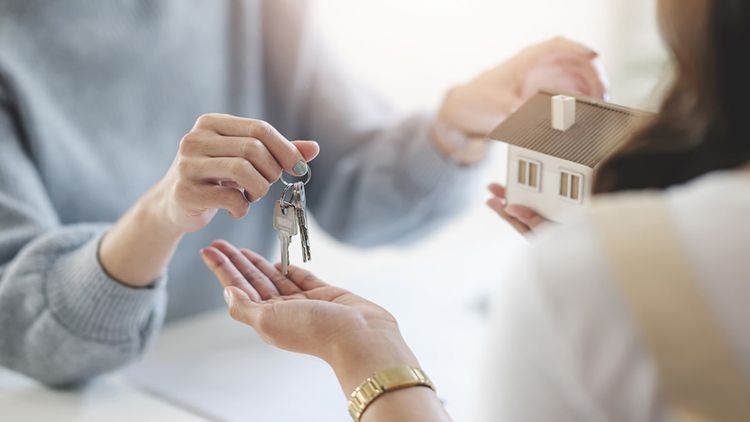Budgeting to buy a house
Find out how to budget and build credit to buy your dream home.

Buying a house or flat may be the biggest purchase you will ever make. And if you're a first-time buyer you may feel overwhelmed. Your mind may be full of questions... Is your credit rating good enough to get a mortgage? How much do you need to save for your deposit? What other costs are involved? In this guide, we explain the costs involved in budgeting to buy a house and saving for a mortgage.
Saving for a mortgage
When it comes to saving for a mortgage to buy your first home, two of the biggest considerations are your credit rating and your deposit.
We explain the importance of your credit rating in the last section of this guide. But first up, here's how and why saving a sufficient deposit can make getting a mortgage that bit easier.
Saving for a deposit
The average age of first-time buyers in the UK rose from 31 to 33 between 2008 and 2018. One of the reasons for this is that, for many people, saving for a deposit may be harder than it used to be. With the cost of living rising, your disposable income may be lower than that of your parents at a similar age a few decades ago.
Saving for a deposit can take time and determination but the end result can be hugely worthwhile. The sense of satisfaction and security gained by finally owning your own home is likely to outweigh the sacrifices you had to make to buy it – and you'd be surprised how saving can mount up when you budget smartly.
What you can afford to save for your deposit is a personal decision. You need to reach a figure that is right for you and your lifestyle. Putting aside an amount each month into a high interest savings account will help you to save your deposit slowly but surely.
How much deposit is required?
If you're saving for a deposit, how much should you aim to save? The answer depends on how much the property you wish to buy costs, and what mortgage rate you are willing to accept.
Some lenders will lend mortgages up to 95% of the cost of a property. So, the minimum deposit you need is 5%. However, if you only have a deposit of 5%, you are likely to have to pay a higher interest rate on your mortgage.
Having a deposit of 10% may get you a better mortgage interest rate. And bringing a 20-25% percent deposit to the table, a better rate still. This could save you £1,000's over the lifetime of your mortgage. But why does your deposit size affect your mortgage interest rate?
Well, a larger deposit means you represent a smaller risk to the lender. If you were unable to repay your mortgage, the lender could sell your home and claim the proceeds. The larger your deposit, the less the lender stands to lose if your home were to decrease in value.
Costs involved in buying a home
Aside from your deposit, there are other costs involved in buying a home. In this section, we'll take you through eight costs that you need to include in your budget as a first-time buyer.
1) Survey cost
When you're taking out a mortgage, it helps to know every nook and cranny of your future home. The survey cost is an optional fee you pay a surveyor or your lender to assess any structural problems with your property before you buy it.
The cost of the survey will depend on which type of survey you go for. You can read more about homebuyer surveys on The Money Advice Service website. You may want to budget around £400 - £700 for this.
2) Mortgage arrangement fee
The mortgage arrangement fee, also known as a product fee, is an upfront fee that you pay to your mortgage provider. It helps to secure a specific interest rate on your mortgage.
Typically, a mortgage arrangement fee costs up to £2,000. You can choose to add the arrangement fee to your monthly mortgage payments but this will increase the amount you repay each month.
If you want to read more about mortgage fees, The Money Advice Service provides some useful information.
3) Valuation fees
Not to be confused with the survey fee, which is for your benefit as the buyer, the valuation fee is another fee charged by your mortgage lender.
An average valuation fee is £250. This covers the cost of your lender's assessment of how much the property you want to buy is worth and is an important part of your mortgage application.
4) Broker fee
If you're using a mortgage broker to arrange your mortgage on your behalf, you will need to pay them a fee. Using a broker is not necessary, but some people feel it takes the stress out of finding the best mortgage deal, and you could find a better deal as they will do the research for you.
If you decide to use a broker, check how much their fee is first. They may charge a fixed fee or they may charge a percentage of your property value which can make their fee pretty costly, but often you don't pay until you exchange and the sale has gone through.
5) Stamp duty
Commonly known as stamp duty, Stamp Duty Land Tax (SDLT) is a tax you pay to the government when you buy a property in England and Northern Ireland. In Scotland this fee is called Land and buildings Transaction Tax, and in Wales, Land Transaction Tax.
To understand how much you'll have to pay, read the stamp duty information page of the government website. Or use this handy stamp duty calculator provided by The Money Advice Service.
6) Solicitor's fee
To buy a house, you need to get a solicitor to do some of the legal legwork for you. This is known as conveyancing. The cost of your legal fees will depend on which solicitor you choose. As a guide, you can expect this cost £500 – £1,500.
7) Land Registry fee
The Land Registry is a record of who owns all of the properties in the UK. The service charges you a fee to add your name to the register when you buy a house. You may need to budget up to £500 for this depending on the price of your property.
8) Post-completion costs
Our first seven costs cover all the expenses you will incur up to the point of completion (when you finally own your home). But don't forget to budget for the costs you'll incur after you get your keys. These include:
- Removal costs — you may want to budget for a removal van, unless you have a helpful friend with a van or you haven't got much to move.
- Renovation costs — are you going to need to do any work on the place to make it livable? Be sure to budget for this.
- Decorating costs — put aside some money to give the place a lick of paint if it needs it.
- Furnishing costs — you may need new furniture, so do include this in your budget.
Creating a budget
Now you know the costs involved in buying your first home, creating a budget should be much simpler. Plan it out on paper or on your computer so that you have it all laid out and can refer to it throughout the savings process.
For more tips and guidance on how to budget, read our handy guide.
How does your credit score impact a mortgage application?
When you're applying for a mortgage, building your credit score is important because a good credit rating is something lenders look for when deciding how risky you are as a borrower.
Having a good credit rating also gives you access to a wider range of lenders and makes it easier to get approved. A wide choice of lenders is important as some lenders offer better rates than others, and the total amount each lender may offer you can vary too. This is where a mortgage broker could come in handy to have visibility of all of these options rather than doing your research alone.
Building your credit rating is a smart move when you're planning to apply for a mortgage as it makes getting approved that bit easier.
Improving your credit rating
Aqua wants to help prepare you for getting a mortgage. Aside from giving you handy budgeting tips, the main way we can get you mortgage-ready is by building your credit rating.
Used responsibly, an Aqua credit card can help to increase your credit rating. Your credit score reflects your ability to borrow money and pay it back on time, so spending money on a credit card and consistently repaying it on time demonstrates your ability to manage debt responsibly to other lenders. Over time, this can improve your credit rating and increase the borrowing options available to you – like a mortgage.
39.9% APR Representative (variable) for Aqua Classic
Failure to make payments on time or to stay within your credit limit means that you will pay additional charges and may make obtaining credit in the future more expensive and difficult.
Contributors


You might also like
Slide 1 of 3
How to budget effectively
Find out how to keep on top of your finances and become a budgeting pro.

How to get a mortgage with bad credit
Discover how you can improve your chances of buying a house with bad credit.

Everyday budgeting
Budgeting bills and everyday budgeting tips.
The smart way to build better credit
Aqua is the credit card that gives you the power to improve your credit score
